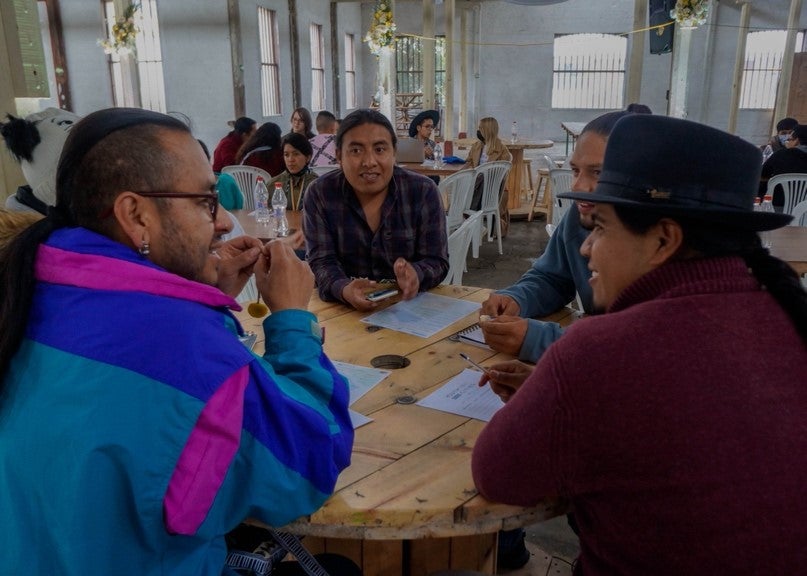Two countries, 3 cities, 175 youth participants!
From March 1 to 15 2022, the Youth 2030 Cities project hosted three Forums in Latin America, bringing together diverse youth to discuss the most pertinent problems facing their local communities and to find inclusive and sustainable solutions.
Located in Otavalo, Ecuador; Quito, Ecuador; and Cali, Colombia, these forums were the culmination of many months of youth capacity-building workshops which focused on the localisation of the Sustainable Development Goals and youth participation in local government. During these workshops, the youth participants indicated that the SDGs most crucial to their local realities were: #3 Good Health and Well Being, #4 Quality Education, #5 Gender Equality, #8 Decent Work and Economic Growth, and #10 Reduced Inequalities.
The events were held in Otavalo March 12th, Quito March 13th, and Cali March 19th.
Different expectations
During the forums, youth participants were invited to present about how these SDGs were reflected in their local contexts and why it’s important to achieve them by 2030.

In Otavalo, Quality Education means maintaining cultural heritage, Climate Action means adequate land use management, and Reduced Inequality means fighting against the discrimination of indigenous people.
Youth in Quito see Gender Equality as gender and sexual diversity represented within local government and feel the pressure of Decent Work and Economic Growth due to the gap in opportunities for adequate employment.

Cali understands Sustainable Cities and Communities as improving pedestrian security and Good Health and Well Being as access to basic resources and the right to peacefully protest without youth lives being at risk.

Local government officials were present at each forum, thus, offering an opportunity for dialogue and a space for peace building. Each forum included break-out sessions where youth and government delegations chose from an array of topics such as urban expansion and environmental security, youth in governance, economic growth and employment opportunities, land rights and management, and gender and sexual rights.

Diverse people, diverse ideas
The conversations around each topic proved to be as diverse as the participants in attendance and fomented knowledge-building as each group worked towards creating inclusive and sustainable solutions, leaving no one and no community behind. These solutions were built into the DeclarActions which were constructed at the end of the breakout sessions—a document clearly stating the challenges facing local youth populations and the possible solutions crafted by youth and local government in a united effort. Governmental officials have been invited to sign on to these DeclarActions and include them into their national development plans.

Give youth a chance
The three forums constituted a space that youth are usually not afforded. A space to discuss local challenges, express long-held grievances, and brainstorm innovative solutions. Youth make up the world’s largest population, yet they are often the ones who are listened to the least.
Youth 2030 Cities is a partnership between UN-Habitat, Fondation Botnar’s Healthy Cities for Adolescents programme, local government and youth focused on increasing the capacity of youth and youth-led organizations to implement projects and activities that lead to the achievement of the Sustainable Development Goals by 2030.